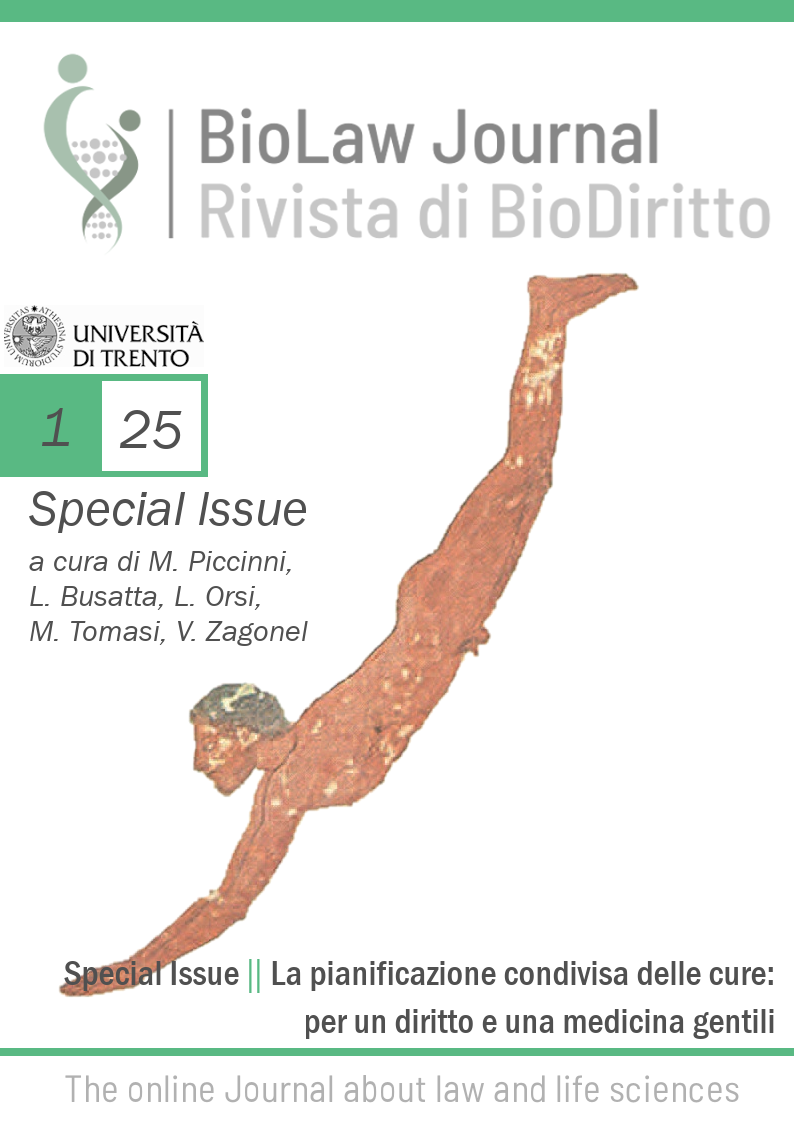PHILOSOPHICAL PREMISES OF SHARED CARE PLANNING: VULNERABILITY, RELATIONAL AUTONOMY, MEDICINE AS A PRACTICE OF CARE
DOI:
https://doi.org/10.15168/2284-4503-3398Keywords:
Advance care planning, shared care planning, relational autonomy, vulnerability, care relationship, medicine as a practice of careAbstract
Shared care planning is a tool with great potential, but its effective application depends on understanding and applying key philosophical premises. This essay explores four critical premises: implicit anthropology, the conception of autonomy, the notion of medicine, and the model of the doctor-patient relationship. We aim to demonstrate that successful shared care planning requires adopting a more phenomenologically accurate perspective on illness, medicine, and the patient-caregiver relationship. Furthermore, we advocate for educational programs that cultivate a deeper appreciation of what it means to respect and support autonomous yet inherently vulnerable individuals.
Downloads
Published
How to Cite
Issue
Section
License
Copyright (c) 2025 University of Trento

This work is licensed under a Creative Commons Attribution-NonCommercial-NoDerivatives 4.0 International License.





